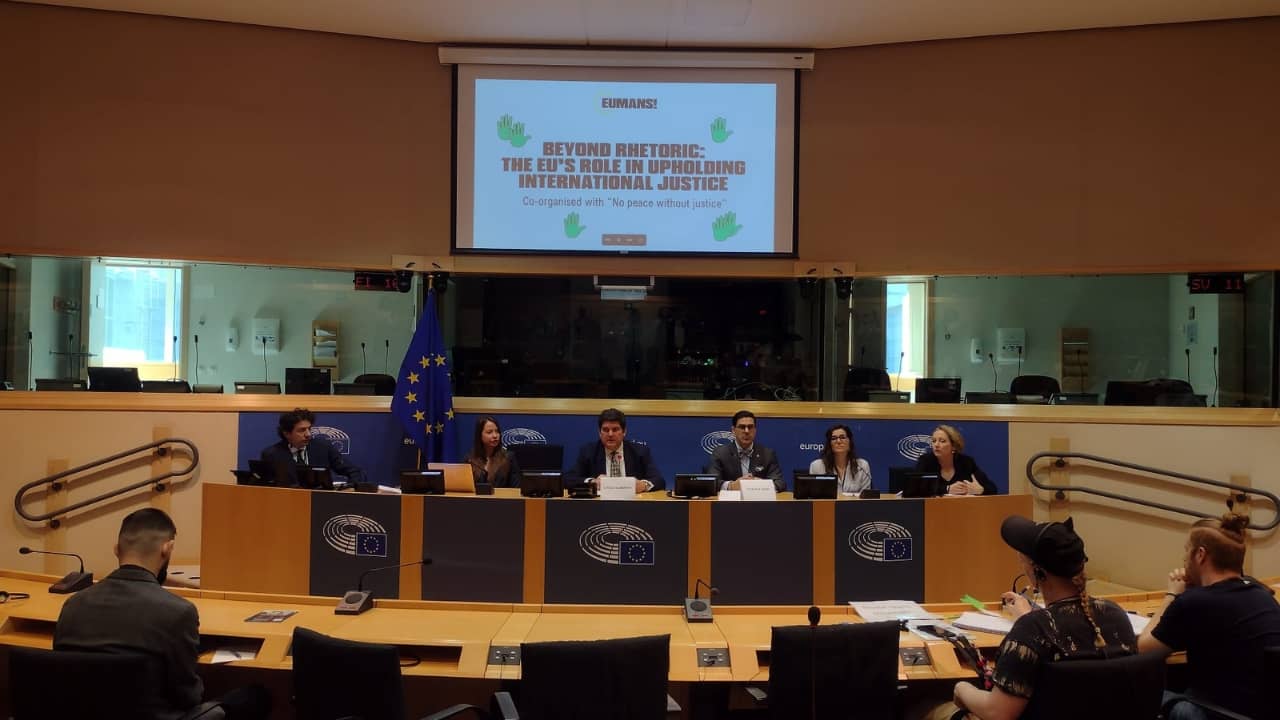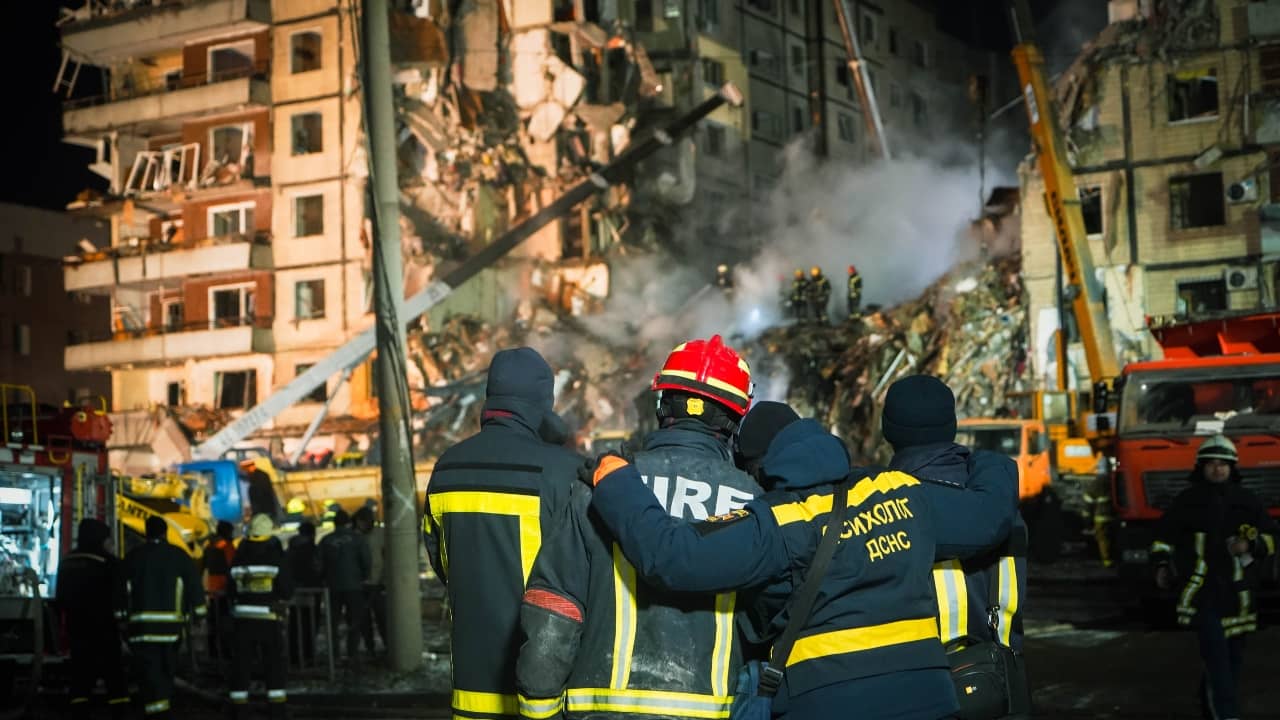
The International Criminal Court (ICC) plays a crucial role in achieving global justice, upholding the Rule of Law, and ensuring accountability for crimes against humanity, war crimes, crimes of genocide, and crimes of aggression. Despite the Court's significant progress since 2022 when it was established by the Rome Statute in 2002, numerous challenges still need to be overcome to achieve comprehensive global justice, including addressing criticism of the ICC’s efficiency.
In this regard, and on the occasion of the 43rd plenary session of the African, Caribbean and Pacific States and the European Union (ACP-EU) Joint Parliamentary Assembly, the PGA Group in the European Parliament organized a lunch meeting, aiming at demystifying the ICC. Experts, civil society representatives, and parliamentarians from the Central African Republic, the European Parliament, Ghana, Italy, Malawi, Namibia, Niger, and Suriname, participated in an open dialogue touching upon issues related to the ICC and highlighting the importance of universal accountability in the pursuit of justice and sustainable peace.
In their opening remarks, Mr. Fabio Massimo Castaldo (Member of the European Parliament, Italy), Co-Convenor of the PGA International and Human Rights Program and Chair of PGA Group in the European Parliament, and Mr. Domènec Ruiz Devesa (Member of the European Parliament, Spain), emphasized the EU and European Parliament long-standing support for the ICC, which was revitalized in light of the ongoing war of aggression by the Russian Federation against Ukraine. Since last year, the EU provided additional financial support to the ICC, mobilized resources, and collaborated further with the ICC in joining the Joint Investigative Team on Ukraine. For its part, the European Parliament adopted several resolutions, urging Ukraine to ratify the Rome Statute. Although the primary focus was therefore given to the situation in Ukraine in the past month, Mr. Castaldo and Mr. Ruiz Devesa stressed the need for the international community to strengthen its action for all of the situations under investigation at the ICC. Furthermore, they underlined the necessity to improve the scope of the ICC mandate, including by recognizing the crime of ecocide, as well as to promote regional integration and ratification of the Rome Statute.
Mr. Matias Hellman, External Relations Advisor to the ICC Presidency, focused his intervention on the concrete functioning of the ICC and explained that joining the ICC remains a voluntary, and sovereign decision for each State to make. By ratifying the Rome Statute, States Parties become part of a system, which prioritizes victims and communities of survivors’ rights. As of today, the ICC is investigating 16 situations worldwide: 9 in Africa, 3 in Asia, 1 in the Americas, 2 in Europe, and 1 in the Middle East. Mr. Hellman further explained that such investigations can be initiated by a referral of a State Party for atrocities committed on its territory or by one of its nationals, by a referral of the UN Security Council, or by the initiative of the Prosecutor of the ICC himself (proprio motu) – in the limitation of the ICC’s mandate, which cannot be retroactive prior to 2002, i.e., prior to the entry into force of the Rome Statute. Since the Court is only complementary to national criminal jurisdiction, it is essential that States ratify and implement the Rome Statute, which, moreover, has a deterrent effect on potential perpetrators of atrocities.
Ms. Virginie Amato, Head of Advocacy and Program of the Coalition for the International Criminal Court (CICC), highlighted the challenges faced by the ICC, including resource limitations impacting its efficiency, and may participate to give an impression of double standards. Further concerns were expressed in relation to threats against ICC officials, which further jeopardize their work. It is therefore of utmost importance that States Parties increase their support and cooperation with the Court.
Ms. Frederika Schweighoferova, Director of PGA International Law and Human Rights Program, stressed the importance of ratifying and implementing the Rome Statute and all of its amendments at the domestic level. Not only this improves the universality of the Rome Statute, but it also allows countries to harmonize their domestic system with the highest international standards: ratifying the Rome Statute plays a crucial role in improving the Rule of Law, victims’ rights, fair trials rights, as well as human rights in general.
During their dialogue, parliamentarians inquired about the process of bringing a case to the Court and expressed interest for the international justice to investigate crimes that are outside of the scope of the ICC’s mandate (such as providing reparations to countries who historically suffered from slavery, or prosecuting international legal entities causing chemical damages on country territories). Concerns were also raised in relation to the influence on the ICC’s functioning of non-party States, and especially those who are also permanent members from the UN Security Council. They called for “leaders to lead by example” and urged countries worldwide for more consistency between words and actions. Some parliamentarians also requested further support in analyzing legislations and aligning their Criminal Codes with the Rome Statute, for which PGA reiterated its readiness to continue its work on the matter, and to accompany parliamentarians in these efforts.
Overall, stakeholders agreed on the necessity to increase efforts to fight impunity worldwide, including by reinforcing regional cooperation.





